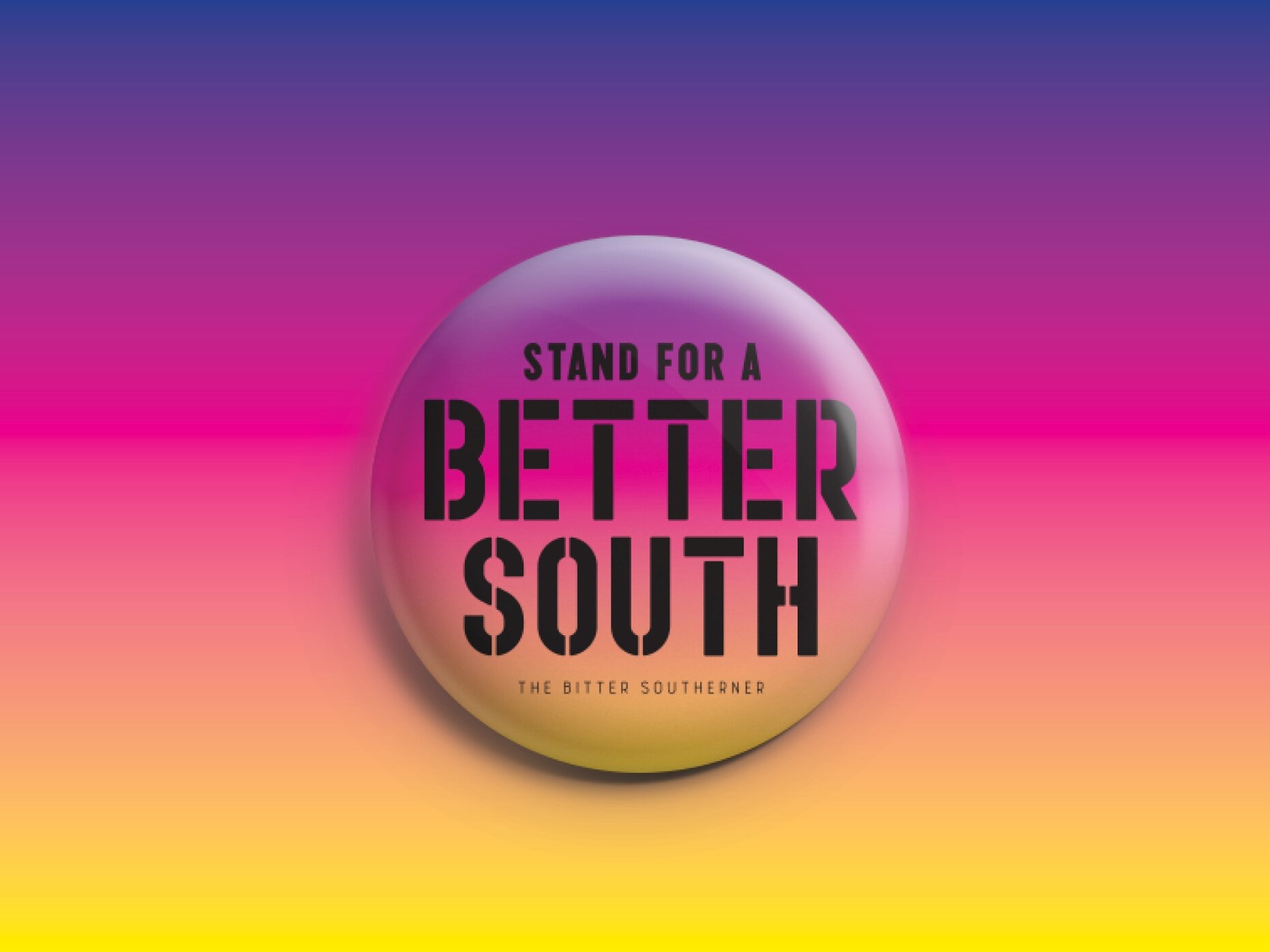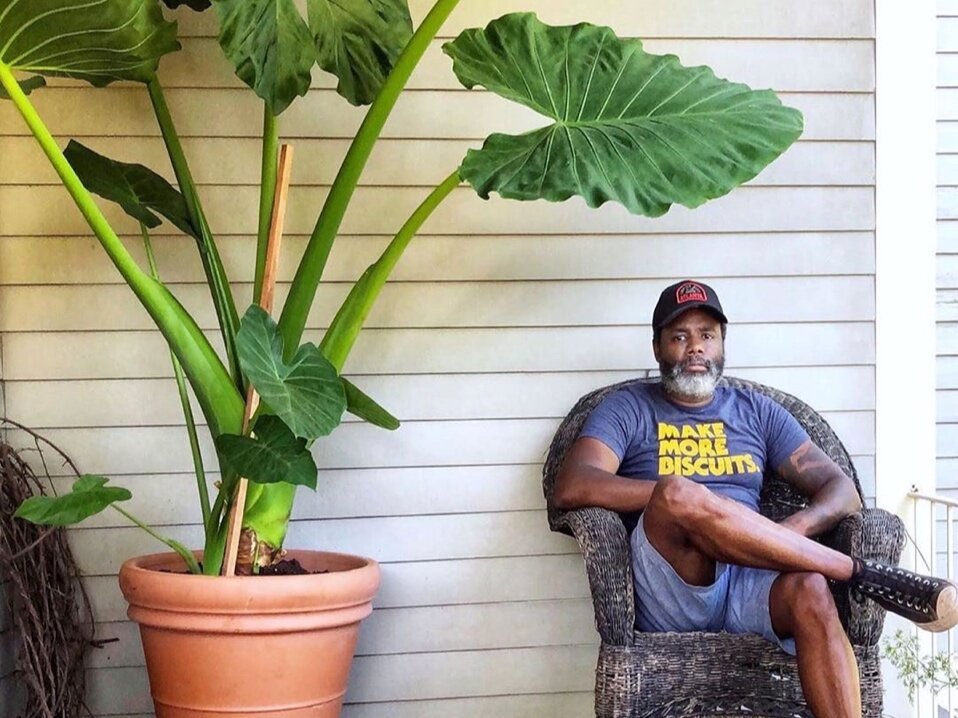Julia Franks volunteered as an Atlanta poll worker in August for the primary runoff elections. Her reflections raise concerns about safety and access while shining light on the dedication of often overworked and underappreciated poll workers.
by Julia Franks
Imagine that you live in a purple state struggling to figure out new voting machines, a state where the election board has been accused of suppressing voters’ rights. Imagine you decide to volunteer as a poll worker — because you hope it will translate into votes, maybe more so than protesting in the street — and, bonus: there will be public restrooms, an amenity that, at 56, you have come to appreciate.
Georgia rolled out brand new machines in 2020. Then, because of the novel coronavirus, many counties made other changes, including polling locations, some new staffers, and social distancing protocols. On Aug. 11, I’m working with six other people at the Barack H. Obama Elementary Magnet School of Technology in southeast metro Atlanta during a nonpartisan general runoff election. Three of us are fit and healthy and middle-aged. We’ve taken time off from our jobs to be here. The other four poll workers are retired ladies, two seemingly in their 60s, and two so tiny and frail that I have to assume they’re closer to 80.
This particular district, Gresham Road, consists mostly of Black voters, and it became notorious after a major meltdown during the June primaries. On that day, the site manager was trying to master the new machines and figure out how social distancing might work. To top it off, the school janitor showed up an hour late to open the doors. The poll workers never finished setting up, never caught up, and never got 12 of the 16 machines to work — not when the first voters showed up at 7 a.m., and not later in the day when the lines stretched out of the building and into the parking lot. Polling hours were extended until midnight, and workers were on-site from 5 a.m. setup until the end of breakdown at 2 a.m. The fiasco made national news.
This morning everyone is nervous. I’m the new gal, trying to figure out where I fit in. I’m the only white poll worker, and the first thing I realize is that I’m sadly underdressed. “Business casual” is the dress code, but when I’d learned about setup and breakdown and last spring’s 21-hour workday, I’d opted for sneakers and jeans. The other ladies are wearing silky blouses, dress slacks, jewelry, polished leather shoes, and, in some cases, heels. Then it occurs to me: they’ve been working this job for years, these women, and the oldest ones probably have stories to tell: about Jim Crow, about the civil rights movement, about the passage of the Voting Rights Act of 1965. For them, much of the job is about dignity and grace. They are here to represent. Even if it means working a 21-hour day in high heels.
We address each other in the old way: Ms. Martha, Ms. Rosena, Ms. Julia, Mr. Anthony, a nomenclature old as the South, and one that strikes a balance between formal and friendly. By some chance, all the ladies are wearing animal-print blouses. We laugh and say I didn’t get the memo, which becomes the day’s running joke.
Shortly after the polls open, a very young, very tiny blonde arrives, all out of breath, backpack over shoulder, apologizing profusely. (She was at the old polling location, and yes, there was a sign, but it was still dark and she didn’t see it.) We don’t care: we’re just relieved to see her. She’s our on-site technician, on call in case of problems with the new machines.
There’s a hierarchy here. We newbies are at the bottom. My job is mostly just answering questions, taking green voting cards, and handing out stickers. The elderly ladies, Ms. Martha and Ms. Rosena, have the most difficult and most prestigious jobs: checking in the voters. The process involves an iPad on a swiveling stationary mount, technology that was rolled out just as COVID-19 swept across the state. The two ladies, both of whom weigh less than 100 pounds, sit side by side at a white conference table. Incoming voters stand above them on the other side of the table and hand over their driver’s licenses. If a voter has applied for an absentee ballot but hasn’t received it or sent it in, the whole process grinds to a halt while Ms. Martha verifies, re-checks, and sometimes makes a phone call. And the physical setup is such that each voter ends up huddling over the iPad, head-to-head with Ms. Martha or Ms. Rosena for several minutes.
Watching this procedure sets my teeth on edge. My own parents are 81.
In a week, I'll email the district manager and offer to make Lexan partitions to set on the tables and protect the check-in clerks from voters' breath. She’ll forward that email to the county office, and they’ll say no, that the law doesn’t allow any deviation from the standard setup. It’s a liability issue: if the improvised equipment causes an injury, they can't be responsible. (Since then, DeKalb County has updated its COVID-19 safety precautions and said poll workers will be wearing masks and face shields. No such requirements can be legally made of voters.)
Here at our polling site, the grandmothers don’t social distance. Some of them don’t hear masked conversation well, and they’re forever leaning in toward people’s mouths. If a man with a walker comes in, they personally guide him to the booth and help him avoid the extension cords snaking across the floor. There is much touching. Meanwhile, the door manager, Justin, and I have set up our stations in such a way as to encourage social distancing. Even though we’re years younger, we give voters and each other a wide berth. We use the hand sanitizer again and again. The youngest of us, the blond technician, spends the day huddled, literally, in a corner. It seems the younger we are, the more frightened.
The truth is that I could offer to do the voter check-in for Ms. Martha and Ms. Rosena. But I don’t offer. I’m too scared to be that close to the voters. And here’s the other thing: they don’t want me to. They’d be insulted if I offered to take over their jobs, as if I were suggesting their early retirement.
Instead, I ask the site manager. He’s harried but generally grateful when others take initiative or set up some traffic pattern that encourages social distancing. “Mr. Anthony, aren’t you worried about all those people standing over Ms. Martha and Ms. Rosena?”
His eyes widen as if to say: I know. “That’s why, when I do it, I always stand up.”
“But couldn’t we hand the iPads back and forth so everyone’s not huddled together like that?”
He shakes his head. “Yeah, but, we only got the two. Then we start moving them. What if one breaks?” He doesn’t want a repeat of primary day.
I have no good answer.
Almost every voter thanks us for being poll workers. Though Georgia law does not require it, every single person wears a mask. The only mask-less person I see the whole day is the school’s janitor, who grins without any seeming awareness that he's the only one in the building without his face covered. I avoid him, even if it means backing down the hallway like a crab.
I intentionally chose this site, not because of the primary meltdown, but because I know the neighborhood pretty well. It’s one of the most wooded sections inside the city perimeter, and I use the trails a lot. I’m also drawn by the school’s recent construction. To me the brand new gymnasium means one thing: good ventilation. The truth is I don’t have the guts to spend the day in some musty church basement. Later, it turns out not to make a difference because the school’s HVAC automatically shuts off at 6 p.m. — which means that during the evening rush hour there’s no air circulating at all. Again I ask Mr. Anthony. “What about Nov. 3? We’re talking about hundreds of people inside the building at one time and no air flow.” I feel like a squeaky wheel, or a cry baby, so I add, “That’s not healthy for anybody.” Mr. Anthony nods and promises to talk to the janitor, but he doesn’t sound hopeful.
The day passes uneventfully. We get only two complainers, and I’m embarrassed that they’re both white. One woman wants to rehash the primaries. “Do you know how long I was here in June?” she asks Mr. Anthony, then launches into a florid description of the meltdown. Mr. Anthony winces and tries to explain. “You see, what happened was …”
Me, I feel annoyed. I want to shout. That’s why we’re all here. Do you want to help?
The second woman is angry because Ms. Martha can’t find her name in the database. This young woman tells us she’s corrected the county’s spelling several times. After 10 minutes, Ms. Martha finds her name — still misspelled. The young woman sets her hands on her hips, sighs, and fires up her best one-line civics lesson: “This,” she says, “Is why people don’t want to vote.” This time I’m close enough to lob my Do you want to help? line, but by this point in the day, I know Ms. Martha wouldn’t appreciate it. It’s too undignified.
When the polls close, some 180 voters have cast their ballots. It’s a light day, a good practice day. The systems work smoothly. But the general election will bring in hundreds more voters.
Weeks later, the site manager asks me to replace Ms. Rosena at voter check-in on Election Day. I hesitate a long time before answering. I’ve heard the president call for “an army” of his supporters to “watch” the polls. I imagine strangers harassing the voters and me. And the four-hour training focuses almost entirely upon the security of the process — no mention of COVID-19 or the president’s call to action, only the fact that poll “watchers” (trained volunteers) are allowed into the voting area while poll “observers” (everyone else) are allowed only so far as the check-in.
The whole setup feels too fraught, like too much of a sacrifice — and also not nearly enough. I tell the site manager I’ll do it. But I also thread a red whistle onto a lanyard and tuck it into my purse. No doubt I’m overreacting, but I’ll wear it on election day just in case.
In the meantime, I get a test for COVID-19, stay home, and sleep in the guest room. When my quarantine is over, I drive to the nearest dropbox and feed my absentee ballot into the slot. It lands with a light but satisfying sigh.
Julia Franks is the author of Over the Plain Houses (Hub City Press) which was an NPR Best Book of 2016, as well as winner of the Thomas Wolfe Award, the Townsend Award, the SIBA Southern Book Prize, an IPPY Gold Medal, the Georgia Author of the Year Award, and one of Bustle’s Fifteen Great Classic Appalachian Novels. She lives in Atlanta, where she runs loosecanon.com, a Goodreads-style web application tailored for schools.






